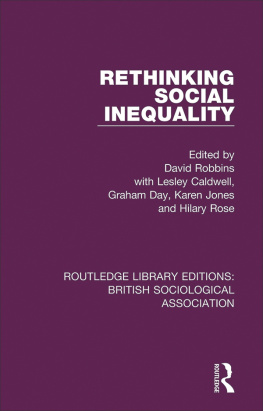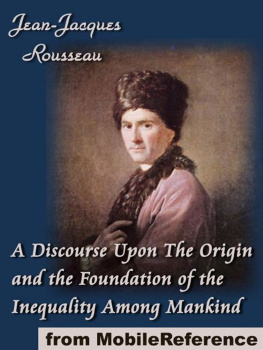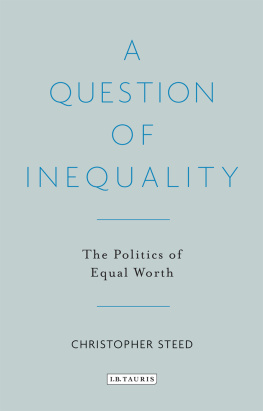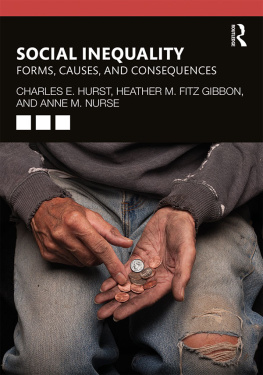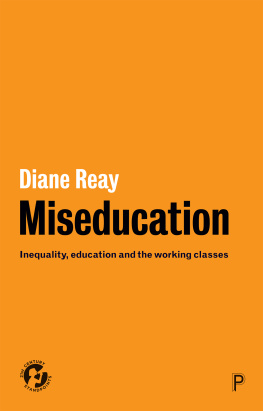Gunnar Landtman - The Origin of the Inequality of the Social Classes
Here you can read online Gunnar Landtman - The Origin of the Inequality of the Social Classes full text of the book (entire story) in english for free. Download pdf and epub, get meaning, cover and reviews about this ebook. year: 2015, publisher: Routledge, genre: Romance novel. Description of the work, (preface) as well as reviews are available. Best literature library LitArk.com created for fans of good reading and offers a wide selection of genres:
Romance novel
Science fiction
Adventure
Detective
Science
History
Home and family
Prose
Art
Politics
Computer
Non-fiction
Religion
Business
Children
Humor
Choose a favorite category and find really read worthwhile books. Enjoy immersion in the world of imagination, feel the emotions of the characters or learn something new for yourself, make an fascinating discovery.

- Book:The Origin of the Inequality of the Social Classes
- Author:
- Publisher:Routledge
- Genre:
- Year:2015
- Rating:4 / 5
- Favourites:Add to favourites
- Your mark:
- 80
- 1
- 2
- 3
- 4
- 5
The Origin of the Inequality of the Social Classes: summary, description and annotation
We offer to read an annotation, description, summary or preface (depends on what the author of the book "The Origin of the Inequality of the Social Classes" wrote himself). If you haven't found the necessary information about the book — write in the comments, we will try to find it.
The Origin of the Inequality of the Social Classes — read online for free the complete book (whole text) full work
Below is the text of the book, divided by pages. System saving the place of the last page read, allows you to conveniently read the book "The Origin of the Inequality of the Social Classes" online for free, without having to search again every time where you left off. Put a bookmark, and you can go to the page where you finished reading at any time.
Font size:
Interval:
Bookmark:


By Kegan Paul, Trench, Trubner & Co., Ltd
2 Park Square, Milton Park, Abingdon, Oxon, OX14 4RN
and by Routledge
711 Third Avenue, New York, NY 10017
The publisher has gone to great lengths to ensure the quality of this reprint but points out that some imperfections in the original copies may be apparent.
The publisher has made every effort to trace copyright holders and welcomes correspondence from those they have been unable to contact.
ISBN 13: 978-1-315-63852-2 (ebk)
GUNNAR LANDTMAN, PH.D.
KEGAN PAUL, TRENCH, TRUBNER & CO., LTD.
BROADWAY HOUSE: 68-74 CARTER LANE, E.C.
STEPHEN AUSTIN AND SONS, LTD., HERTFORD.
| The scope and limitation of the idea of equality.Natural variations and social inequalities.In every society social influence varies to a great extent according to personal merits and demerits.Opportunity never equal.The task of sociology mainly descriptive and explanatory, not concerned with the valuation of phenomena.Individual differences and legal barriers.Complete social equality characterizing peoples in the lowest degree of culture.Rousseau a bizarre eighteenth-century forerunner of modern sociology.Equality as regards rank, property, and labour a distinctive feature of the Kiwai Papuans. The sharing of game, fish, and garden produce with fellow-villagers.Variations in social influence dependent solely on personal qualifications among the Papuans.Social equality among other undeveloped peoples. |
| Political and social inferiority of women.Unequal distribution of labour between the sexes.Women generally excluded from political and religious affairs.Rights denied to women. Instances of women holding an influential position.Such cases do not invalidate the general rule of their subjection.Women's social standing comparatively favourable among the very lowest races.An illustrative instance offered by the Kiwai Papuans. The rights of parents over their children.The authority of advanced age in general.The reverence paid to old people often subject to important restrictions.Age-classes, initiation ceremonies.The initiation of girls.Schurtz opinion of the initiation ceremonies.Initiation in the first place only refers to the attained age of puberty ; the existence of only two real age-classes.Privileges of the adult generation.Food-regulations ,'change of name at initiation ; mutilations and alterations of the outward appearance; dress, ornaments, and tattooing. Significance of the hardships inflicted at initiation ; symbolic death and rebirth.Magic significance of mutilations, tattooing, and name-changing. |
| Definition of classes.Classes defined in theoretical literature. Differentiation through individual conditions.Influence of old age, of supernatural power, of eloquence, of physical adroitness, of courage and skill in hunting.Warlike renown the surest road to eminence.Manliness and strength of mind accompanied by recognition and advancement.Personal dexterity not to be understood according to civilized ideas.Trophies of the chase or war outward tokens of a mans superiority.The preservation of heads and skulls as trophies.Scalps and other similar trophies.Significance of trophies.Badges or traditional symbols for deeds of valour.Weapons as badges.Feather ornaments, horns, hair, and head-dresses.Painting the body; the meaning of colours.Hunters and man-slayers regarded as unclean.Incisions and tattoo-marks denoting honourable achievements.Other similar signs.Precise heraldic meaning of certain badges and signs.General significance of badges. Honorary names and titles.Their importance.Actual privileges procured through personal distinction.Marriage sometimes an advantage of individual superiority.Obligatory trials of young men before marriage.Polygyny accompanies expertness in hunting and fishing.Other advantages of a similar kind. Magic significance of trophies and ornamental badges.Sinking in the social position through personal inferiority.Names and signs of ignominy.Tendency to hereditariness of social inequalities.Varying degrees of importance attached to hereditariness.Position of illegitimate children." Old " and " new " families. |
| Combined influence of personal dissimilarities and inequality of wealth in the formation of classes.Various theories in literature regarding influence of wealth upon social differentiation. Fortune accompanied by respect and influence.Hospitality and generosity highly valued.Names and badges denoting wealth.Distinctive equipment and attire of the rich.Various advantages of wealth ; polygyny.The benefits of polygyny. A plurality of wives highly respected.The mutual position of the wives in a polygynous family.Wealth constitutes a more permanent pre-eminence than personal qualities.The retaining of property within a certain class.The relation between nobility and wealth.The poor and destitute sink to a subordinate position. |
| Division of labour contributing to the origin of classes. No real division of work in the lowest communities.Voluntary intra-tribal assistance.Geographical specialization of labour. Gradual development of a division of labour.Varying degrees of social estimation assigned to different groups of workers. Important handicrafts and such as require great skill are highly respected.Hereditariness of trades.Despised occupations degrade those engaged in them.Among many peoples all handicrafts as a rule stand low in estimation.The position of executioners.Butchers.Workers in leather.Cooks. Women's work accounted degrading.Agricultural labourers. Weavers.Potters.Barbers.Griots or minstrels.Importance of the division of labour. |
Font size:
Interval:
Bookmark:
Similar books «The Origin of the Inequality of the Social Classes»
Look at similar books to The Origin of the Inequality of the Social Classes. We have selected literature similar in name and meaning in the hope of providing readers with more options to find new, interesting, not yet read works.
Discussion, reviews of the book The Origin of the Inequality of the Social Classes and just readers' own opinions. Leave your comments, write what you think about the work, its meaning or the main characters. Specify what exactly you liked and what you didn't like, and why you think so.

